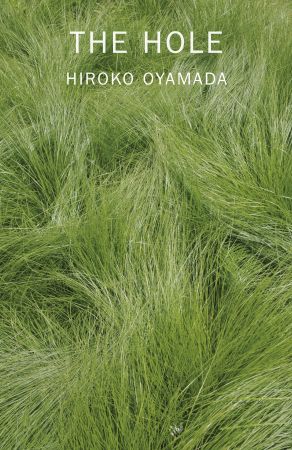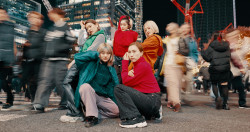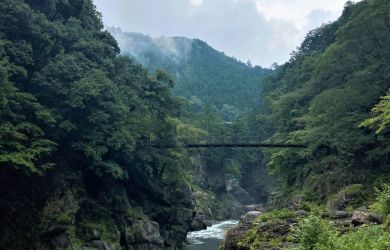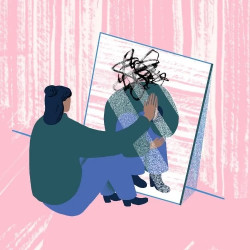
October 15, 2020
‘The Hole’ by Hiroko Oyamada
David Boyd translates Oyamada's surreal novel of transformation and isolation

When Asahi Matsuura quits her part-time job and sinks deeper into her new role as a housewife in rural Japan, the borders of her reality begin to distort. A skillful blur of the mundane and surreal, Hiroko Oyamada’s Akutagawa Prize-winning fiction novel, “The Hole” is finally available in English.
Translated by David Boyd and published by New Directions, it’s Oyamada’s second work to grace the English-language literary scene, anteceded by “The Factory.” This latest translation further cements the author’s reputation as one of the most exciting new novelists emerging from Japan right now.
As with “The Factory,” Oyamada critiques modern society in Japan through her deceptively complex, matter-of-fact prose. While “The Factory” preoccupies itself with Japan’s contemporary work culture, “The Hole” examines Japan’s view of women within the context of family life and careers.
Having recently left her job, 29-year-old Matsuura endures the stifling mundanity of day-to-day life as she finds herself slipping into the mold of “housewife.” The oppressive summer heat, her isolated, rural home, the scrutinizing watch of her mother-in-law and Matsuura’s new title as “the bride” all appear to contain the protagonist within rigid gender norms. With this in mind, the symbolism of the literal hole Matsuura falls into by the riverbanks is certainly no mystery:
“It was probably four or five feet deep, but I’d managed to land on my feet … Trying to move, I realized how narrow the hole really was. It almost felt as though the hole was exactly my size—a trap made just for me.”
Although this metaphor is conspicuous, “The Hole” abounds in subtle ambiguity and complexity, keeping readers alert and questioning their own assumptions. What is the mysterious animal Matsuura follows? Who is family, friend or foe? This skill, of presenting readers with a mystery but never providing a clear-cut solution, is arguably one of Oyamada’s greatest strengths (much to the exasperation of readers who prefer novels with satisfyingly whole plot resolutions).
Elsewhere on Metropolis:
- Yukio Mishima: The Resurgence of a Japanese Literary Master
- Five (Translated) Japanese Novels to Read in 2020
- Yoko Tawada’s The Emissary: Mutation and hope in a not-so-distant dystopian Tokyo
- Tokyo Ueno Station: Yu Miri’s latest novel offers an intimate insight into a harsher side of Tokyo
- Breasts and Eggs: Mieko Kawakami’s intimate portrait of womanhood
Oyamada has been described as an author of psychological or absurdist fiction, and “The Hole” even teeters into thriller territory at times when Oyamada drops dashes of the absurd into scenes of seemingly quotidian life.
At one point, the novel makes explicit reference to Lewis Carroll’s masterpiece:
“‘What kind of idiot falls into a hole?’ Says Matsuura’s supposed brother-in-law. ‘First, it’s dangerous. Second, it’s about the stupidest thing you could do. And third, you don’t belong there—it’s pointless. Who do you think you are? Alice in Wonderland? You thought you’d follow a white rabbit down a hole and find yourself at the start of some big adventure?’”
Ironically, Matsuura’s hole, unlike Alice’s, is not an escape from the mundane reality she finds herself in. Instead, when Matsuura climbs out, she has not been transported to an alternate, fantastical world where anything is possible, but is standing on the banks of the same river, trapped inside her same, stifling life. The question, then, becomes: Which is scarier? To be lost in a bizarre fantasy or to realize that the madness you have found yourself in is, inescapably, your reality?
“The Hole” by Hiroko Oyamada is now available on Amazon
Published via New Directions







